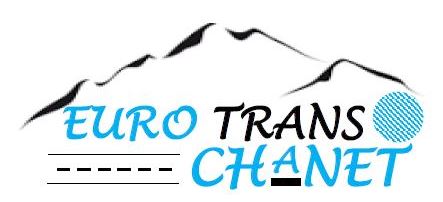- Des questions ?
- 04 73 79 19 76
- eurotrans.chanet@eurotranschanet.fr
What Documents Are Needed to Register a Trust for Income Tax
What Are the Roles and Responsibilities of a Contract Manager
11 avril 2022What Does It Mean to Sustain an Objection in Court
12 avril 2022IMPORTANT: Do not file an amended PA-41 fiduciary income tax return after the department has completed an assessment if the change relates to the same taxation year and the same taxable item of income, profit, deduction or loss. In this case, you must either apply for a reassessment in a timely manner or pay for the review and apply for reimbursement in a timely manner. A personal representative of the estate or trustee of the deceased must file a PA-41 fiduciary income tax return (along with a copy of federal forms 1041 or 5227 and any supporting schedules) if they are a trustee of: Being registered with THE SARS registry today has proven to be quite difficult and time-consuming, especially for a trust. Registering a trust as a taxpayer for the first time could be very difficult. The requirements for this are very stressful, and in addition to the requirements listed on the SARS website, a number of requirements must be met depending on the SARS office you are dealing with. The income from a nuclear power plant decommissioning trust is allocated to the taxpayer who provided the consideration for the establishment of the trust. A: A trust calculates its income tax in the same way as an individual and is allowed to make most of the credits and deductions that a person is allowed to make. Similarly, deductions that individuals are not allowed, trusts are not allowed. For example, personal living expenses such as food, utilities, leisure expenses, raising children, depreciation of personal residence, etc. are not allowed as a fiduciary deduction or as an individual deduction. Trusts are also required to prepare a K-1 schedule for their beneficiaries that tells them the amounts distributed to them by the trust.
These amounts must be included in the beneficiaries` declarations. Pennsylvania`s law differs from the federal law regarding settling trusts. Pennsylvania law imposes income tax on settling trusts under the same Pennsylvania personal income tax rules that apply to irrevocable trusts, unless the settling trust is a fully revocable trust. A: « Simple Trust » is a term used in the Internal Revenue Code to define a trust that: Tip: A trust may be eligible to register as a tax-exempt organization if certain requirements are met. See Sections 10(1)(nC) and 30 MLCBI. A: « Grantor Trust » is a term used in the Internal Revenue Code to describe any trust through which the settlor or other owner has the authority to control or direct the income or assets of the trust. If a settlor retains certain powers or benefits in a trust, the income from the trust is taxed on the settlor and not on the trust. (Examples, the power to decide who receives the income, the power to elect or direct the vote on the shares held by the trust or to control the investment of trust funds, the power to revoke the trust, etc.) All « revocable trusts » are, by definition, constituting trusts. An « irrevocable trust » may be treated as a settling trust if one of the definitions of a settling trust in sections 671, 673, 674, 675, 676 or 677 is met. If a trust is a settling trust, the settlor is treated as the owner of the assets, the trust is considered a separate tax unit, and all income is taxed by the settlor. Income from a taxable bankruptcy estate must be declared to the bankruptcy estate and taxed. The income from the bankruptcy estate declared on the PA-41 fiduciary tax return is calculated in the same way as it would be calculated and reported by the bankrupt on the PA-40 personal income tax return.
This includes income (losses) earned from all income brackets to file a PA-40 income tax return, including earnings, as well as deductions for IRC`s eligible health and medical savings accounts and tuition program fees under section 529 and all credits, with the exception of the tax rebate. All income, gains (losses), deductions and credits associated with a taxable bankruptcy estate are reported in the PA-40 pro forma tax return, which must be attached to the PA-41 bankruptcy estate fiduciary tax return. It does not include income (losses), deductions or credits that must remain with the bankrupt debtor who files a PA-40 tax return to report that income. Any income (losses) attributed to a bankruptcy estate by the bankruptcy court must be reported in the PA-40 pro forma tax return using personal income tax regulations. Non-resident taxpayers whose Pennsylvania income is allocated to a bankruptcy estate must also report the income on a pro forma PA-40 tax return, which is determined as if the income had been reported by a non-resident taxpayer. Pursuant to 11 11 U.S.C. § 346(a), the Commonwealth is required to treat the bankruptcy estate of a debtor bankrupt under Chapter 7 or 11 created under Section 1398 of the Internal Revenue Code of 1986 as a mass for pennsylvania income tax purposes. These bankruptcy estates are required to file the PA-41 fiduciary tax return to declare the income attributable to the bankruptcy estate. Any other trust created solely for the benefit or creditors is not required to file the PA-41 fiduciary income tax return.
A funeral trust is a revocable trust that results from a contract with a person who provides funeral or funeral services or property for those services, with the assets of the trust intended to pay the funeral expenses of the person for whom the trust was established. The value of assets deposited in a funeral fund is capped at $12,500 in Pennsylvania. .
